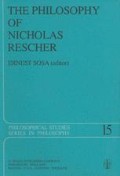Abstract
In writing against Malebranche’s doctrine of ideas, Antoine Arnauld accused Malebranche of confusing cognitive withspatial presence.1Malebranche accepted a common seventeenth-century principle that we can know only what is intimately united to our mind. Since material objects differ in kind from minds, they obviously cannot be united with the mind. Malebranche even used a rather vivid, though somewhat bizarre illustration to make his point: the mind does not walk in space to get near to the objects, nor do objects leave their position in space and come to the mind. It is necessary, therefore, for there to be other things which are present with the mind, by means of which we can know material objects. For Malebranche, these intermediary objects were ideas, whose natural home was with God.2Upon the occasion of specific sensations in nerves and brain, God reveals the relevant ideas to us. These ideas are not copies of objects, they are rather the essential features of objects. In fact, the particularity of objects does not seem to be caught by Malebranche’s ideas: they are universals which render bodies intelligible to us. Thus, the access to the world provided by Malebranche’s ideas is indirect (through God’s intervention, not through any causal activity of objects) and schematic (essentialist knowledge, rather than specific, particular information about the world).
Access this chapter
Tax calculation will be finalised at checkout
Purchases are for personal use only
Preview
Unable to display preview. Download preview PDF.
Author information
Authors and Affiliations
Editor information
Editors and Affiliations
Rights and permissions
Copyright information
© 1979 D. Reidel Publishing Company, Dordrecht, Holland
About this chapter
Cite this chapter
Yolton, J.W. (1979). How is Knowledge of the World Possible?. In: Sosa, E. (eds) The Philosophy of Nicholas Rescher. Philosophical Studies Series in Philosophy, vol 15. Springer, Dordrecht. https://doi.org/10.1007/978-94-009-9407-2_23
Download citation
DOI: https://doi.org/10.1007/978-94-009-9407-2_23
Publisher Name: Springer, Dordrecht
Print ISBN: 978-94-009-9409-6
Online ISBN: 978-94-009-9407-2
eBook Packages: Springer Book Archive

